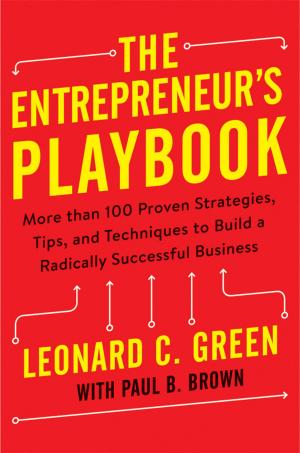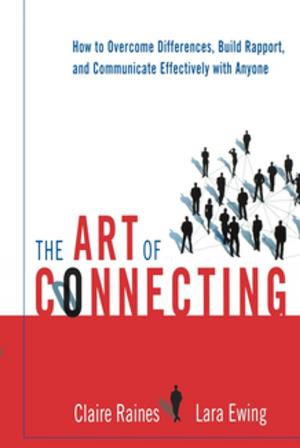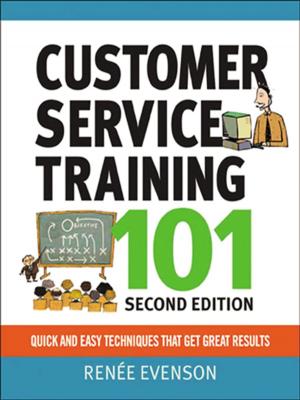Conflict 101
A Manager's Guide to Resolving Problems So Everyone Can Get Back to Work
Business & Finance, Human Resources & Personnel Management, Management & Leadership, Nonfiction, Health & Well Being, Self Help, Self Improvement| Author: | Susan H. SHEAROUSE | ISBN: | 9780814417126 |
| Publisher: | AMACOM | Publication: | May 11, 2011 |
| Imprint: | AMACOM | Language: | English |
| Author: | Susan H. SHEAROUSE |
| ISBN: | 9780814417126 |
| Publisher: | AMACOM |
| Publication: | May 11, 2011 |
| Imprint: | AMACOM |
| Language: | English |
From mild disagreements to major personnel blowouts, conflict in the workplace is unavoidable. Drawing lightheartedly from stories of her own slipups and disagreements as well as examples from her twenty years of experience as a conflict resolution professional, author Susan Shearouse reveals how conflict is created, how to respond to it, and how to manage it more effectively so that your team can get back to doing what it does best: producing top results for your organization. Conflict 101 employs research, humor, and oh-so-relatable anecdotes to help readers more deeply understand what it takes to build trust, harness negative emotions, encourage apologies and forgiveness, use a solution-seeking approach, and say what needs to be said in the workplace to move past conflicts. Whether it’s a fight over resources, a disagreement about how to get things done, or an argument stemming from perceived differences in identities or values, the manager’s role is to navigate relationships, build compromises, and encourage better collaboration. In doing so, you’ll not only become a stronger manager--you’ll build a much stronger team.
From mild disagreements to major personnel blowouts, conflict in the workplace is unavoidable. Drawing lightheartedly from stories of her own slipups and disagreements as well as examples from her twenty years of experience as a conflict resolution professional, author Susan Shearouse reveals how conflict is created, how to respond to it, and how to manage it more effectively so that your team can get back to doing what it does best: producing top results for your organization. Conflict 101 employs research, humor, and oh-so-relatable anecdotes to help readers more deeply understand what it takes to build trust, harness negative emotions, encourage apologies and forgiveness, use a solution-seeking approach, and say what needs to be said in the workplace to move past conflicts. Whether it’s a fight over resources, a disagreement about how to get things done, or an argument stemming from perceived differences in identities or values, the manager’s role is to navigate relationships, build compromises, and encourage better collaboration. In doing so, you’ll not only become a stronger manager--you’ll build a much stronger team.















